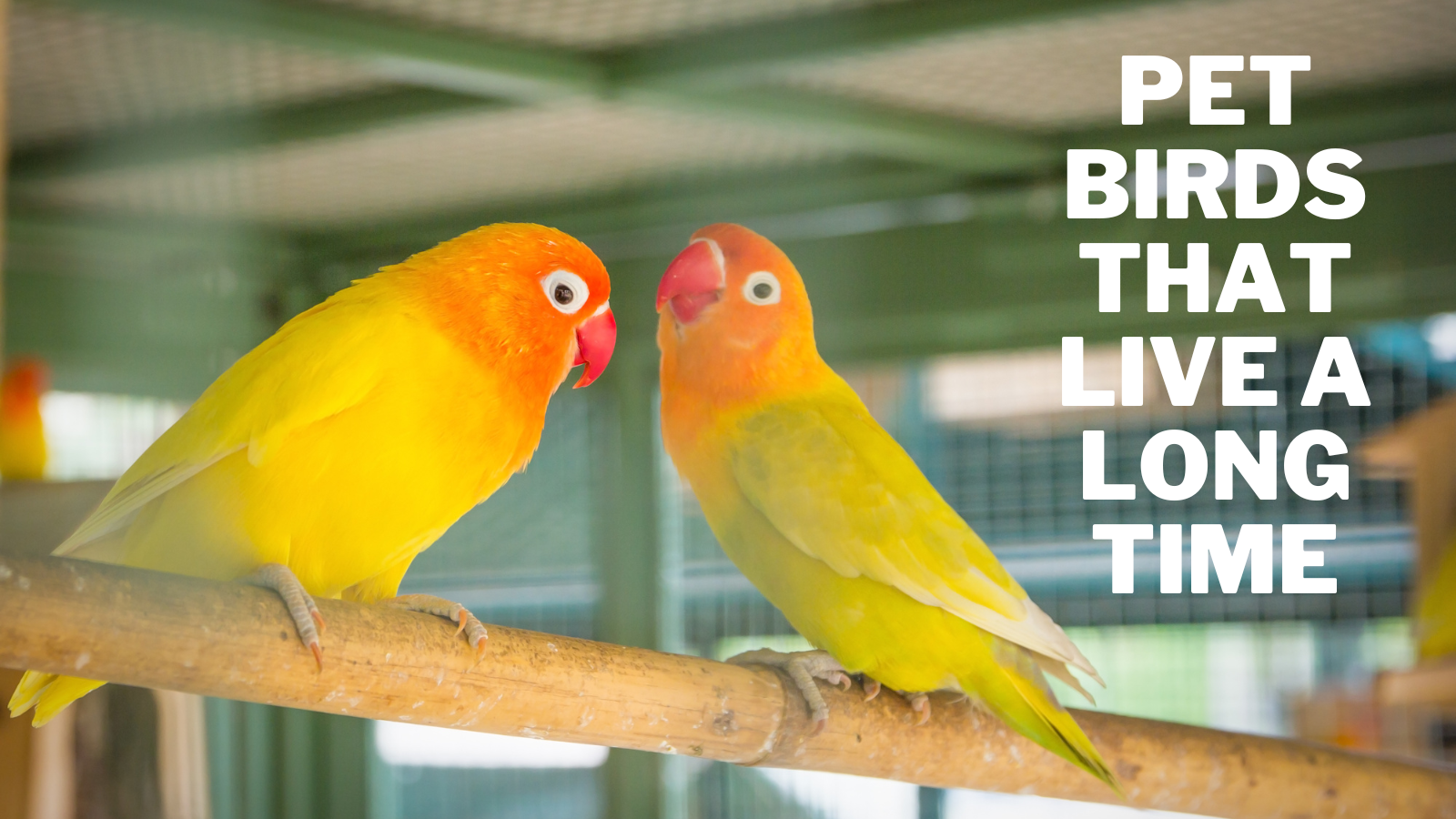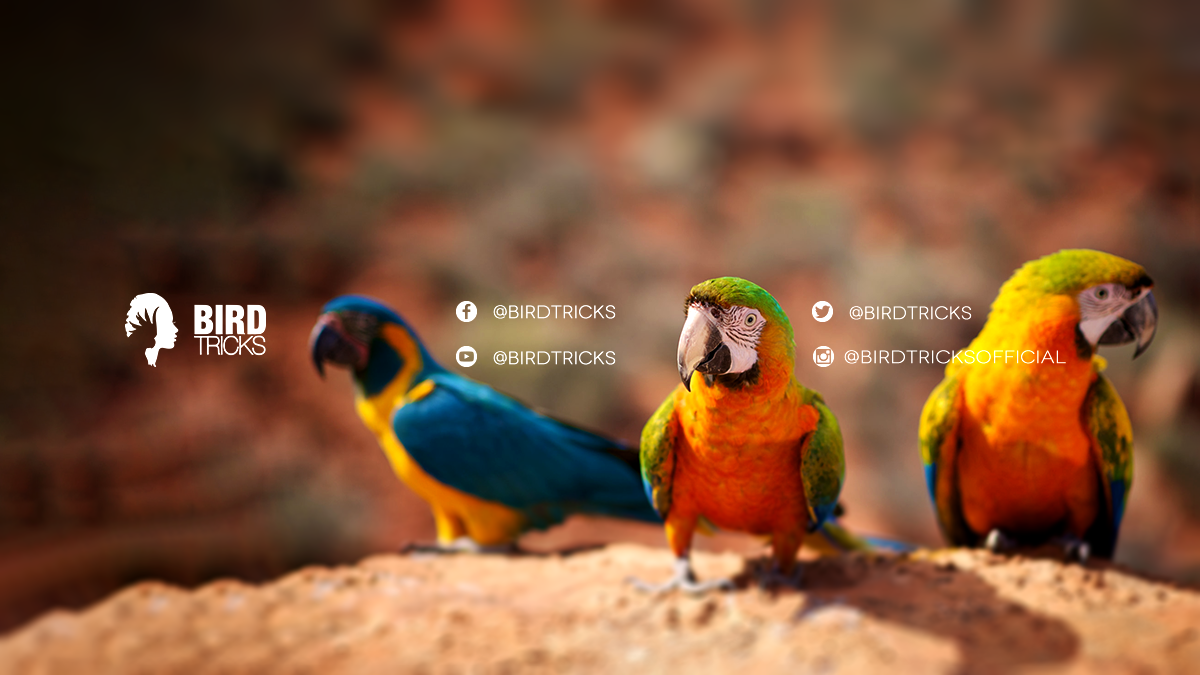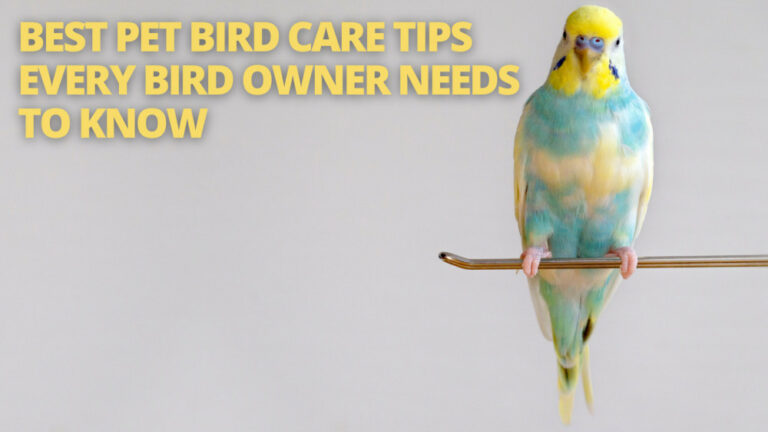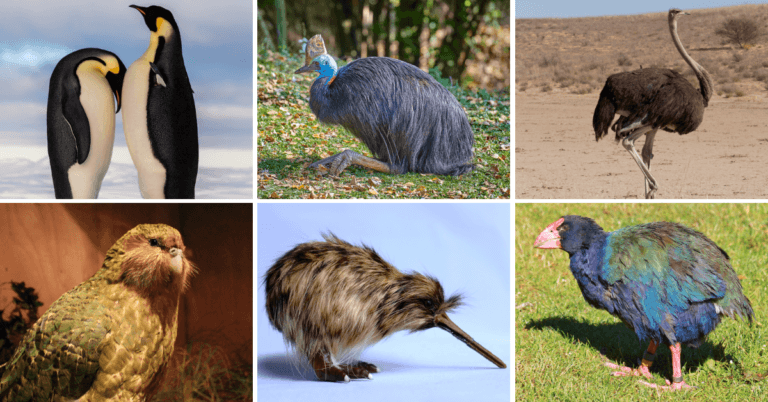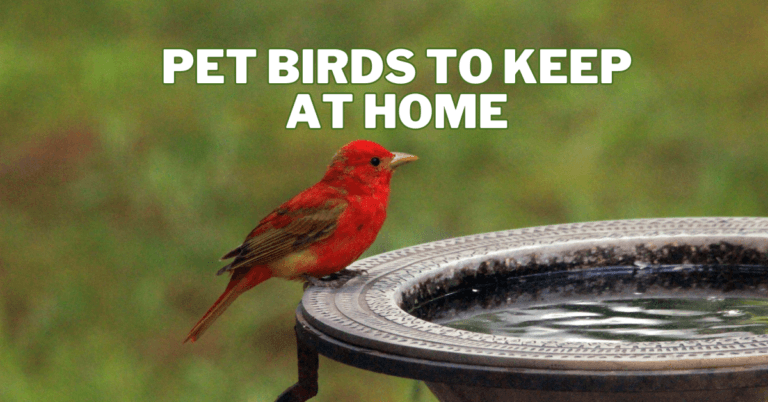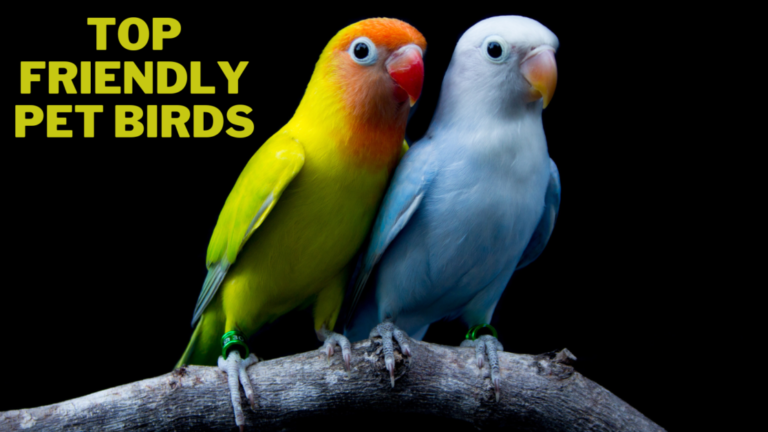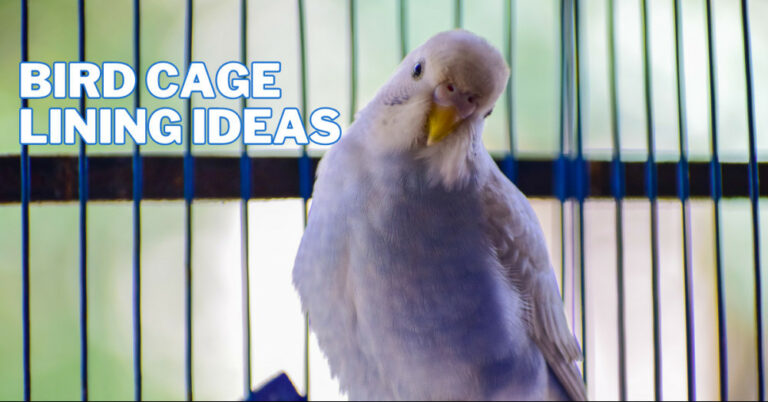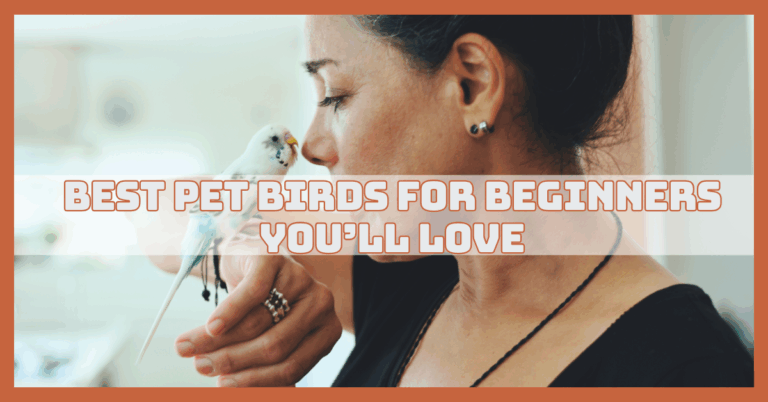Pet Birds That Live A Long Time
Pet Birds That Live A Long Time
Birds are popular pets for many people and good pets to have. However, when it comes to the age of a bird, most of them live for about two or three years.
When you purchase a bird from a store or breeder, you often don't know how old the bird is. But some birds live for up to 10 years. These birds can be really fun to watch grow up and learn new things.
What type of birds is the best to have as pets? It depends on what you're looking for. For a pet that will live a long time, many people turn to birds such as cockatiels, African greys, and budgies.
These birds are known for their longevity and are especially popular with pet bird owners who care about their pets' health. The following list overviews some of the top bird breeds for longevity and how long they typically live.
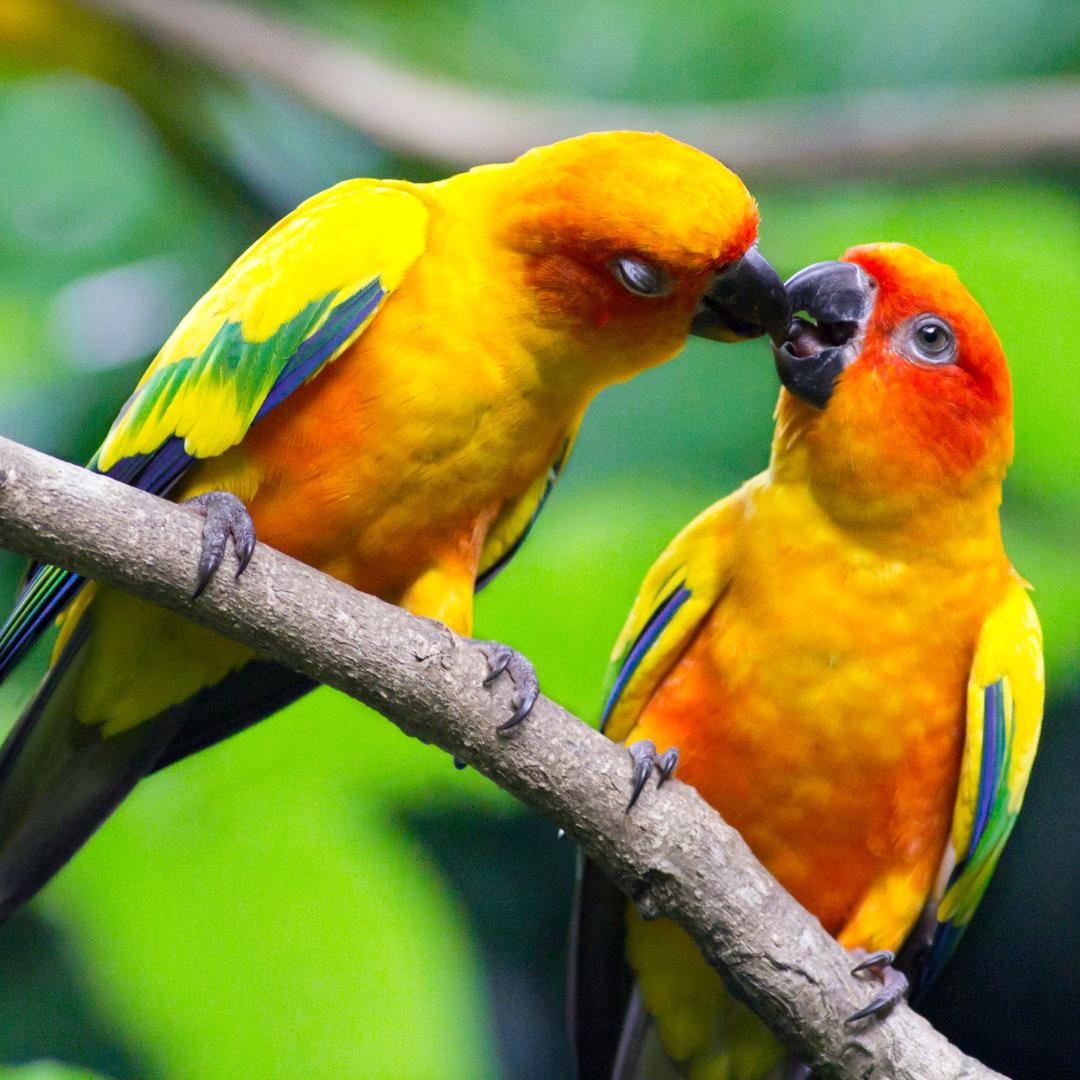
What Factors Contribute To A Bird's Lifespan?
A bird's lifespan is influenced by various factors that can impact its physical and mental health. Understanding these factors can help you provide better care for your pet bird and potentially extend its lifespan. Here are some of the most important factors that contribute to a bird's lifespan:
1. Species
Bird species vary greatly in terms of their lifespans. Some species have been known to live for over 100 years, while others may only live for a few years. The size of a bird is one of the most significant factors that can impact its lifespan.
Larger birds tend to have longer lifespans than smaller birds. For example, macaws, cockatoos, and Amazon parrots are some of the longest-lived bird species commonly kept as pets, with lifespans ranging from 30 to 80 years or more. African grey parrots are also known for their longevity, with some individuals living to be over 50 years old.
In contrast, smaller birds like finches and canaries have a shorter lifespan, typically living for 5–10 years. Budgies (parakeets) have a slightly longer lifespan of 7–15 years.
It's important to note that individual factors such as genetics, diet, and environment can also impact a bird's lifespan, regardless of species. Proper care and attention to your pet bird can help ensure that it lives long and healthy, irrespective of its size or species.
2. Genetics
A bird's genes can influence its lifespan in several ways. For example, some bird species have evolved genetic adaptations that allow them to live longer in the wild. These adaptations may include enhanced DNA repair mechanisms or antioxidant defences that protect cells from damage caused by oxidative stress.
Additionally, some bird species may have genetic predispositions to certain health conditions that can impact their lifespan. For example, some parrot species are prone to developing the fatty liver disease if they consume a high-fat diet. Other bird species may be predisposed to certain types of cancer or heart disease due to genetic factors.
On the other hand, some bird species may have genetic adaptations that contribute to their longevity. For example, researchers have identified genes in certain bird species associated with longer telomeres, which are protective caps on the ends of chromosomes that help prevent cell damage and aging.
While genetics can influence a bird's lifespan, it's important to note that environmental factors such as diet, exercise, and stress also play a significant role in its overall health and lifespan. Providing your pet bird with a healthy diet, regular exercise, and a stress-free environment can help maximize its lifespan, regardless of its genetic predispositions.
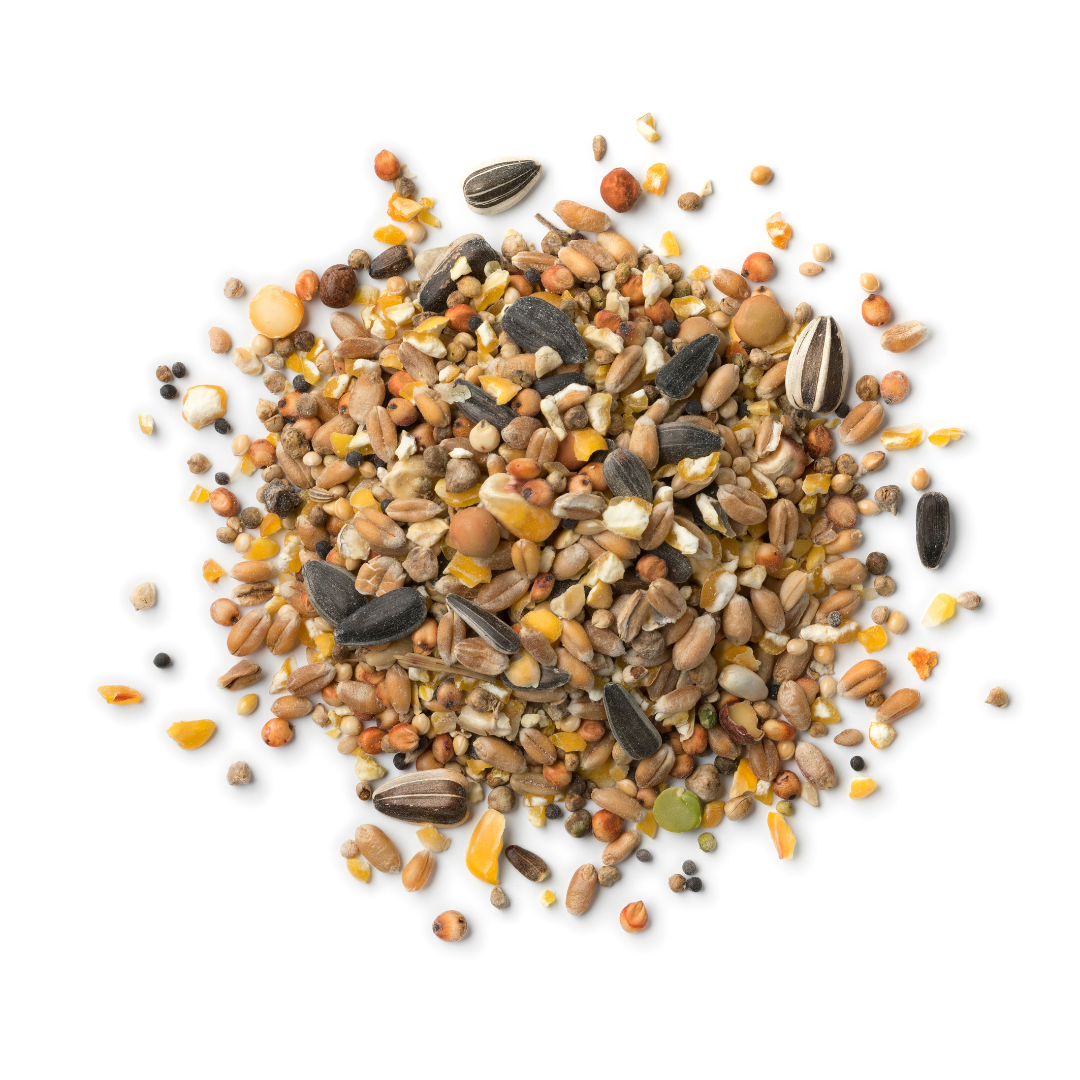
3. Diet
Birds require a diverse diet that includes a variety of foods, including fresh fruits and vegetables, whole grains, and lean sources of protein. Providing various foods helps ensure that your bird receives all the necessary nutrients for optimal health.
High-quality pelleted bird food can be a good source of balanced nutrition if it makes up no more than 50% of your bird's diet. Pellets should be fresh and free from mould or spoilage.
Fresh fruits and vegetables are a great source of essential vitamins and minerals. Offer your bird a variety of fresh foods daily, and remove any uneaten portions after a few hours to prevent spoilage.
Birds require a source of lean protein in their diet, such as cooked chicken or egg, low-fat cottage cheese, or tofu. Avoid feeding your bird processed meats or high-fat sources of protein.
Calcium is essential for strong bones and egg production in female birds. Provide your bird with a source of calcium, such as cuttlebone or calcium supplements, to ensure proper bone health.
Fresh, clean water should be available to your bird at all times. Change the water daily and regularly clean the dish to prevent bacterial growth.
By providing a balanced and varied diet, you can help ensure that your pet bird receives all the necessary nutrients for optimal health and longevity.
4. Environment
Clean living space is essential for preventing the spread of disease and infection. Clean your bird's cage and accessories regularly using a bird-safe cleaner, and remove any droppings or uneaten food daily.
Birds are sensitive to changes in temperature and humidity. Provide your bird with living space at a consistent temperature between 65-85°F (18-29°C) and humidity between 40-60%.
Proper ventilation is essential for maintaining good air quality and preventing the buildup of harmful gases. Ensure your bird's living space is well-ventilated, and avoid placing the cage in areas with poor air circulation.
Birds require exposure to natural light to maintain their circadian rhythm and overall health. Provide your bird access to natural sunlight or use full-spectrum artificial lighting that mimics natural daylight.
A cage that is too small can lead to health problems and stress in birds. Ensure your bird's cage is appropriately sized for its species and provides enough space for exercise and movement.
Providing your bird with mental stimulation and enrichment is essential for maintaining its health and well-being. Offer toys, perches, and other interactive items to entertain and engage your bird.
Creating a clean and safe living space with proper temperature, humidity, and ventilation can help prevent diseases and other health problems and maximize your pet bird's lifespan.
5. Veterinary Care
Not all veterinarians are experienced in treating birds, so finding a qualified avian veterinarian is essential. Look for a veterinarian specializing in avian care who has experience working with your bird's species.
Regular checkups with your avian veterinarian can help detect any health issues before they become more serious. Your veterinarian may also recommend routine bloodwork and other diagnostic tests to monitor your bird's health.
Some bird species may require vaccinations against certain diseases, such as psittacosis. Talk to your avian veterinarian about any necessary vaccinations for your pet bird.
Parasites, such as mites and lice, can cause health problems in birds. Your avian veterinarian can recommend safe and effective methods for controlling and preventing parasites in your pet bird.
Birds have a beak made of keratin and function similarly to teeth. Regular trimming of a bird's beak may be necessary to maintain proper position, but this is not the same as dental cleaning. It's important to seek advice from a qualified avian veterinarian for adequate care of your bird's beak and overall health.
6. Exercise
Allowing your bird to fly freely in a safe, enclosed space can provide excellent physical activity and mental stimulation. Birds that can fly are generally healthier and more active than those that cannot fly.
Providing a variety of toys for your bird can help stimulate its mind and prevent boredom. Toys that encourage foraging and problem-solving are particularly beneficial.
Birds are social creatures and require socialization to maintain good mental health. Interacting with your bird regularly and providing opportunities to interact with other birds can help keep it mentally and emotionally healthy.
Training your bird can provide mental stimulation and improve its physical health. Training can include teaching your bird to do tricks, respond to commands, or provide interactive training exercises.
Depending on the bird species, providing time for outdoor play can also provide important physical and mental stimulation. This can include time spent in a secure outdoor aviary or taking your bird on supervised outdoor excursions.
7. Stress
Loud noises, such as construction, traffic, or even a noisy household, can be stressful for birds. Loud noises can cause birds to become anxious or frightened, which can affect their physical health.
Overcrowding in a bird's living space can also be stressful. Birds need adequate space to move around and spread their wings, and being crowded can lead to physical and psychological stress.
Constant disruptions, such as frequent visits from strangers or other pets in the household, can cause anxiety and stress in birds. Birds require a calm and predictable environment to feel secure and healthy.
Changes in routine, such as a change in the bird's diet or living environment, can also be stressful. It is important to introduce any changes slowly and gradually to minimize stress.
Pet Birds That Are Known To Live A Long Time
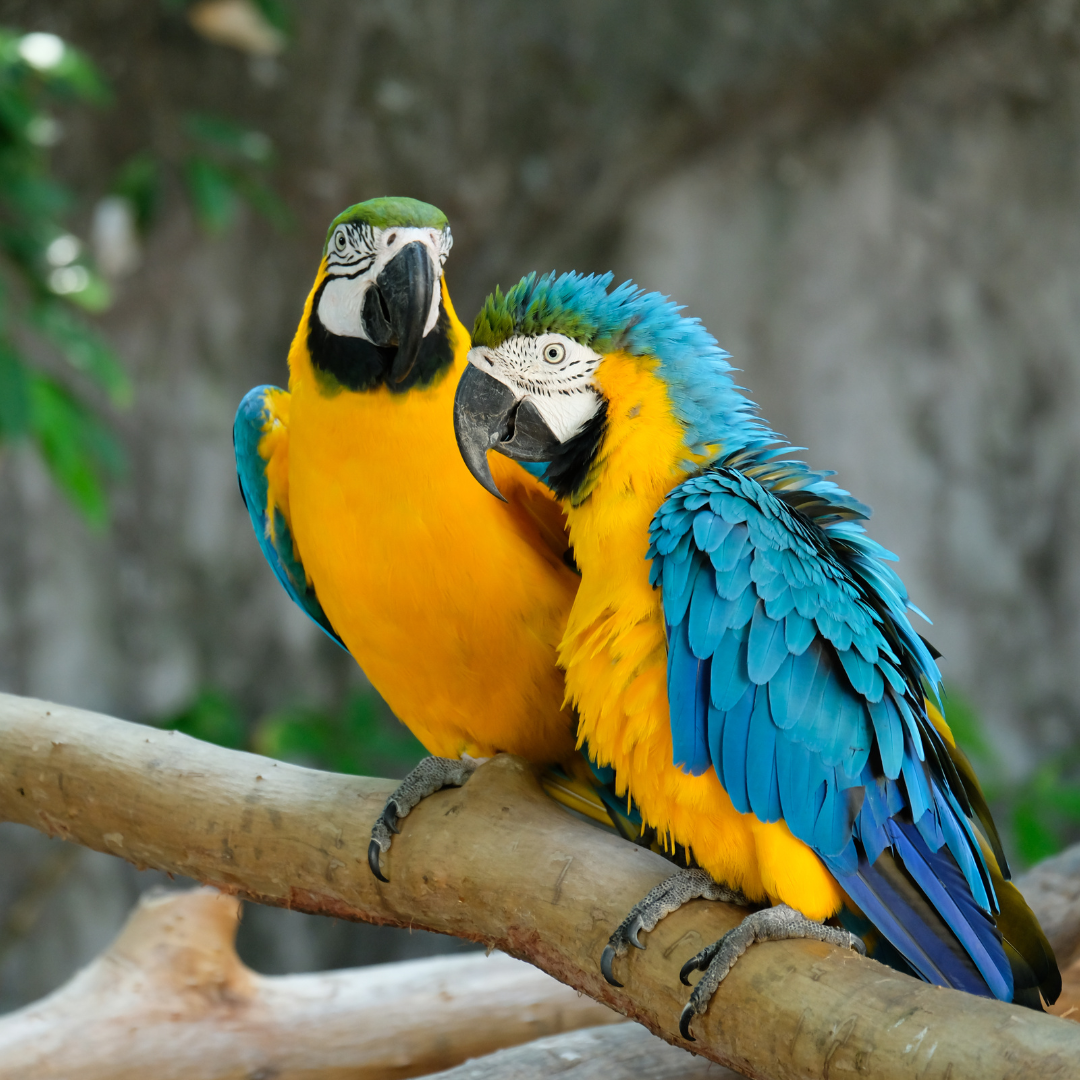
1. Macaws
Macaws are among the longest-lived of all pet bird species. Some macaw species can live up to 60 years or more in captivity with proper care and attention. However, the exact lifespan of an individual bird can vary based on factors such as genetics, diet, and environment.
The largest macaw species, such as the Hyacinth Macaw and the Green-Winged Macaw, tend to have longer lifespans than smaller ones. For example, Hyacinth Macaws can live up to 50-60 years in captivity, while the average lifespan of a Scarlet Macaw is around 40-50 years.
Macaws can be prone to health issues as they age, so it's important to provide them with regular veterinary care and monitor their health closely.
Some common health problems in macaws include beak and feather disease, respiratory infections, and nutritional deficiencies. Proper diet and environmental conditions can help prevent these health problems and help macaws live longer healthier lives.
If you are considering getting a macaw as a pet, it's important to understand the significant commitment involved. Macaws require much attention, social interaction, and mental stimulation to thrive, and they can be very demanding pets.
However, these intelligent, social birds can make wonderful and rewarding pets for many years for those willing to provide the care, and attention macaws need.
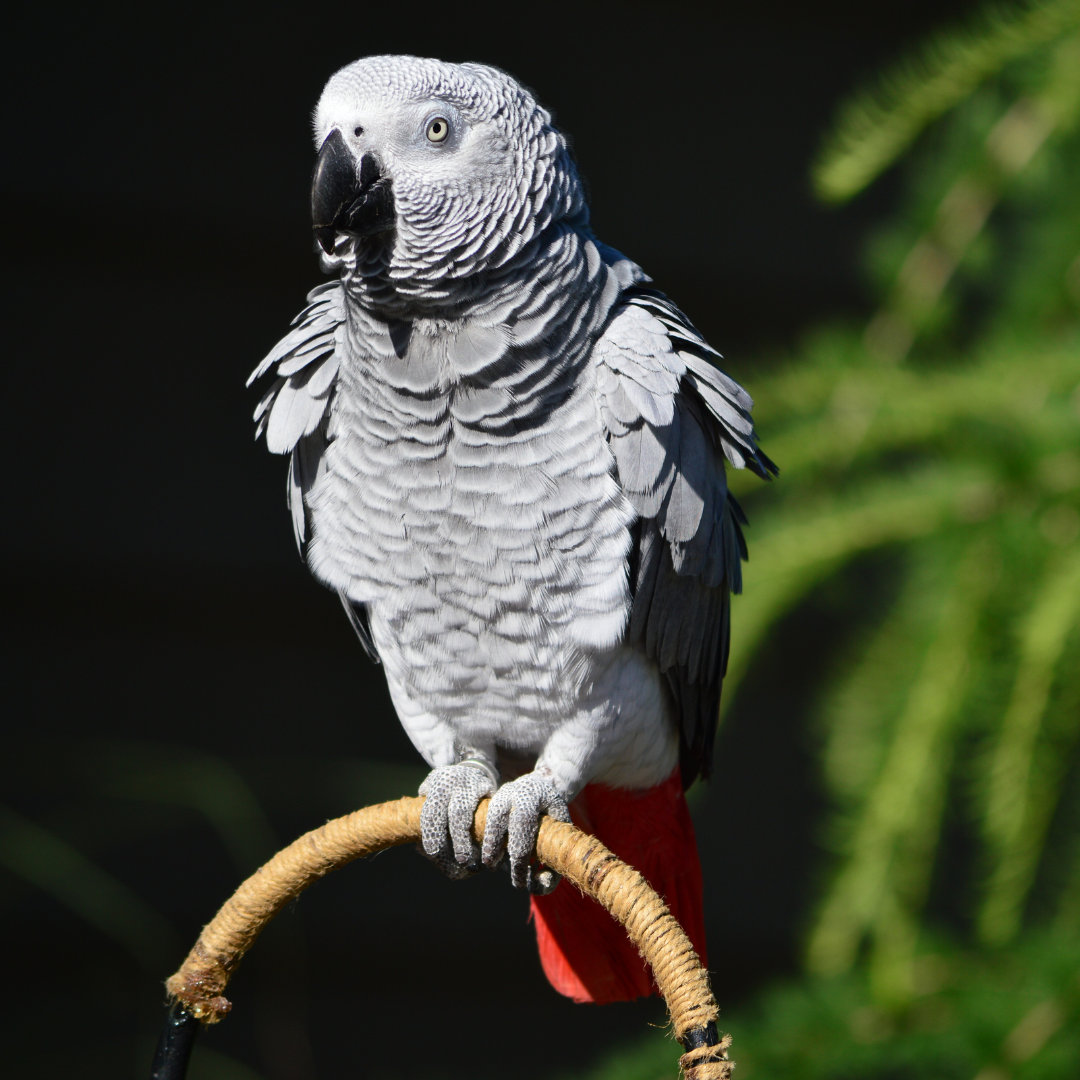
2. African Grey Parrots
African Grey Parrots are among the most popular pet bird species, known for their intelligence, affectionate nature, and ability to mimic human speech. African Grey Parrots can live up to 50-60 years in captivity with proper care and attention.
The lifespan of an African Grey Parrot can vary depending on genetics, diet, and environment. However, with proper care, African Greys can live for several decades, making them a significant long-term commitment for potential owners.
As African Greys age, they may become more prone to health problems such as arthritis, respiratory infections, and nutritional deficiencies. Regular veterinary checkups and a balanced diet can help prevent or manage these health issues and keep African Greys healthy and happy.
In addition to their lifespan, African Grey Parrots are also known for their intelligence and social nature. They require a lot of mental stimulation, social interaction, and attention from their owners to thrive. They can be very affectionate and bond closely with their owners, but they can also be demanding pets requiring much time and attention.
Overall, African Grey Parrots can make wonderful and rewarding pets for those willing to provide them with the care, attention, and love they need to thrive. However, their long lifespan and high maintenance requirements make them a significant commitment that should not be taken lightly.
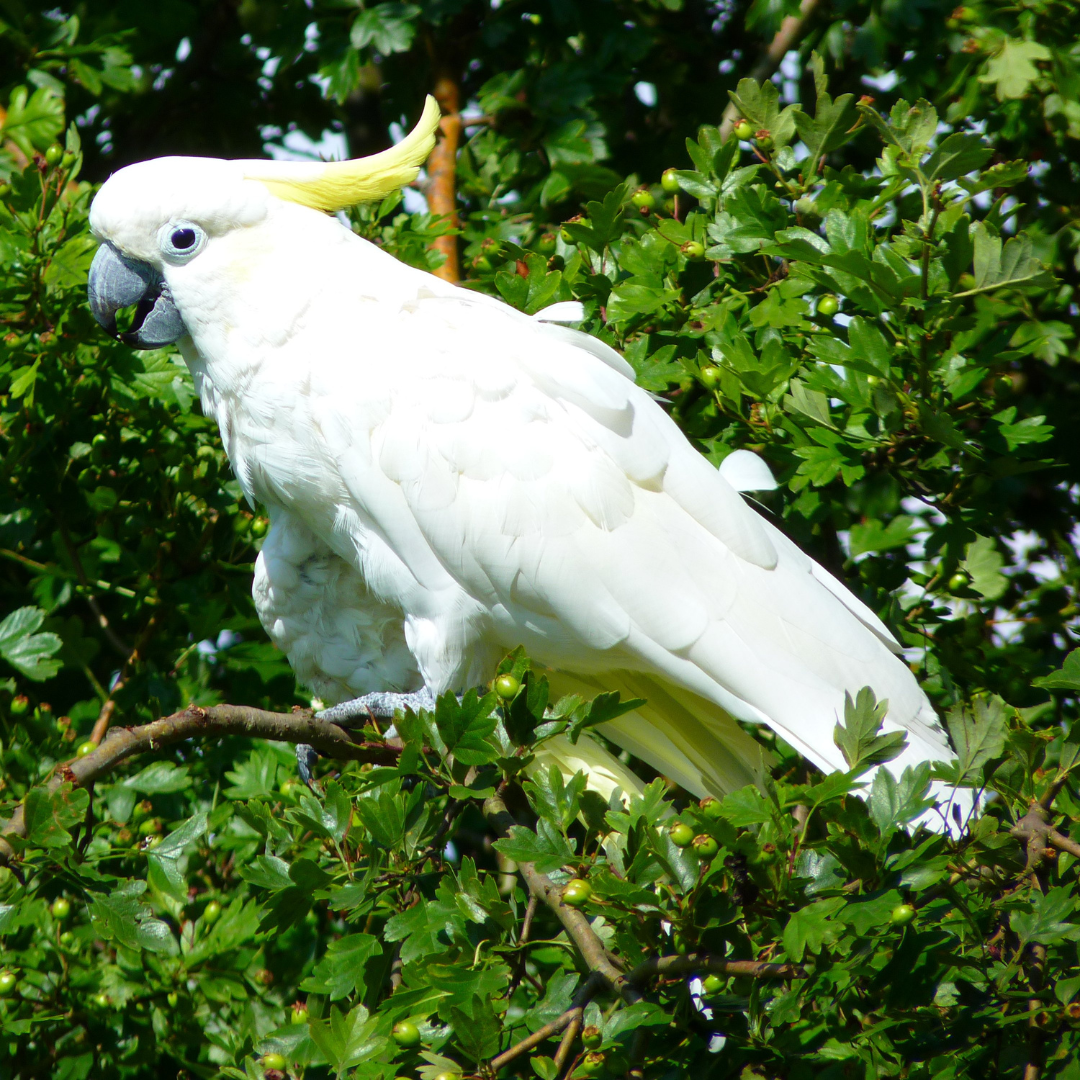
3. Cockatoos
Cockatoos are a group of parrot species known for their striking appearance and affectionate personalities. In captivity, some species of cockatoos can live up to 40-60 years with proper care and attention.
The lifespan of a cockatoo can vary depending on factors such as genetics, diet, and environment. For example, the sulphur-crested cockatoo, one of the most common cockatoo species kept as a pet, can live up to 40-60 years in captivity with proper care.
Cockatoos are highly social birds that require a lot of interaction and stimulation from their owners to thrive. They can be very affectionate and form strong bonds with their owners, but they can also be demanding pets requiring much time and attention.
Cockatoos are intelligent birds and need plenty of mental stimulation, such as toys and puzzles, to keep their minds active and healthy.
As cockatoos age, they may become more prone to health problems such as arthritis, respiratory infections, and nutritional deficiencies. Regular veterinary checkups and a balanced diet can help prevent or manage these health issues and keep cockatoos healthy and happy.
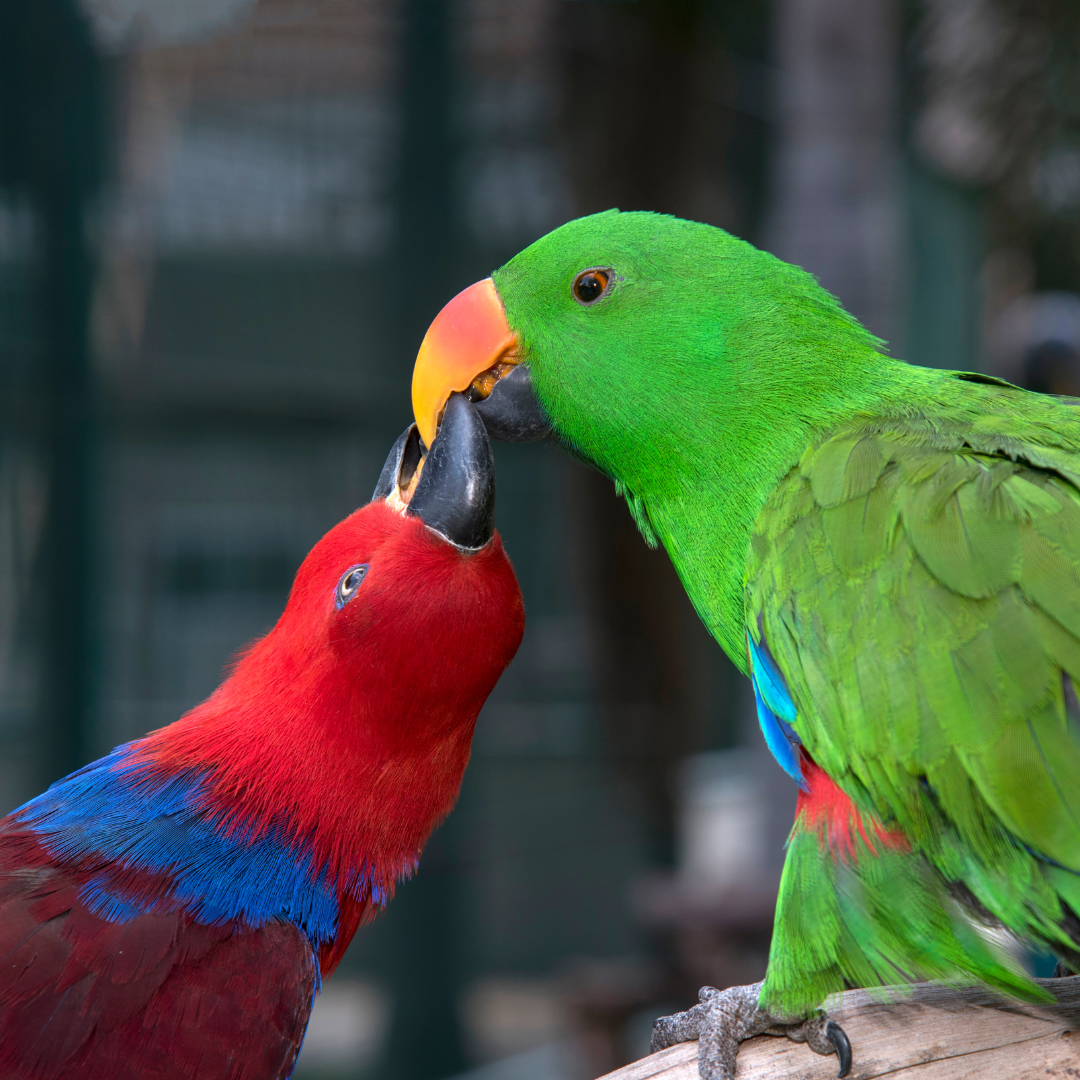
4. Amazon Parrots
Amazon parrots are a popular pet bird species known for their playful personalities and ability to mimic sounds and words. With proper care, Amazon parrots can live up to 50 years or more in captivity, depending on the species.
The lifespan of an Amazon parrot can vary depending on the species, genetics, diet, and environment. For example, the Yellow-crowned Amazon parrot has an average lifespan of around 30-50 years, while the Blue-fronted Amazon parrot can live up to 50-70 years in captivity with proper care.
As Amazon parrots age, they may become more prone to health problems such as arthritis, respiratory infections, and nutritional deficiencies. Regular veterinary checkups and a balanced diet can help prevent or manage these health issues and keep Amazon parrots healthy and happy.
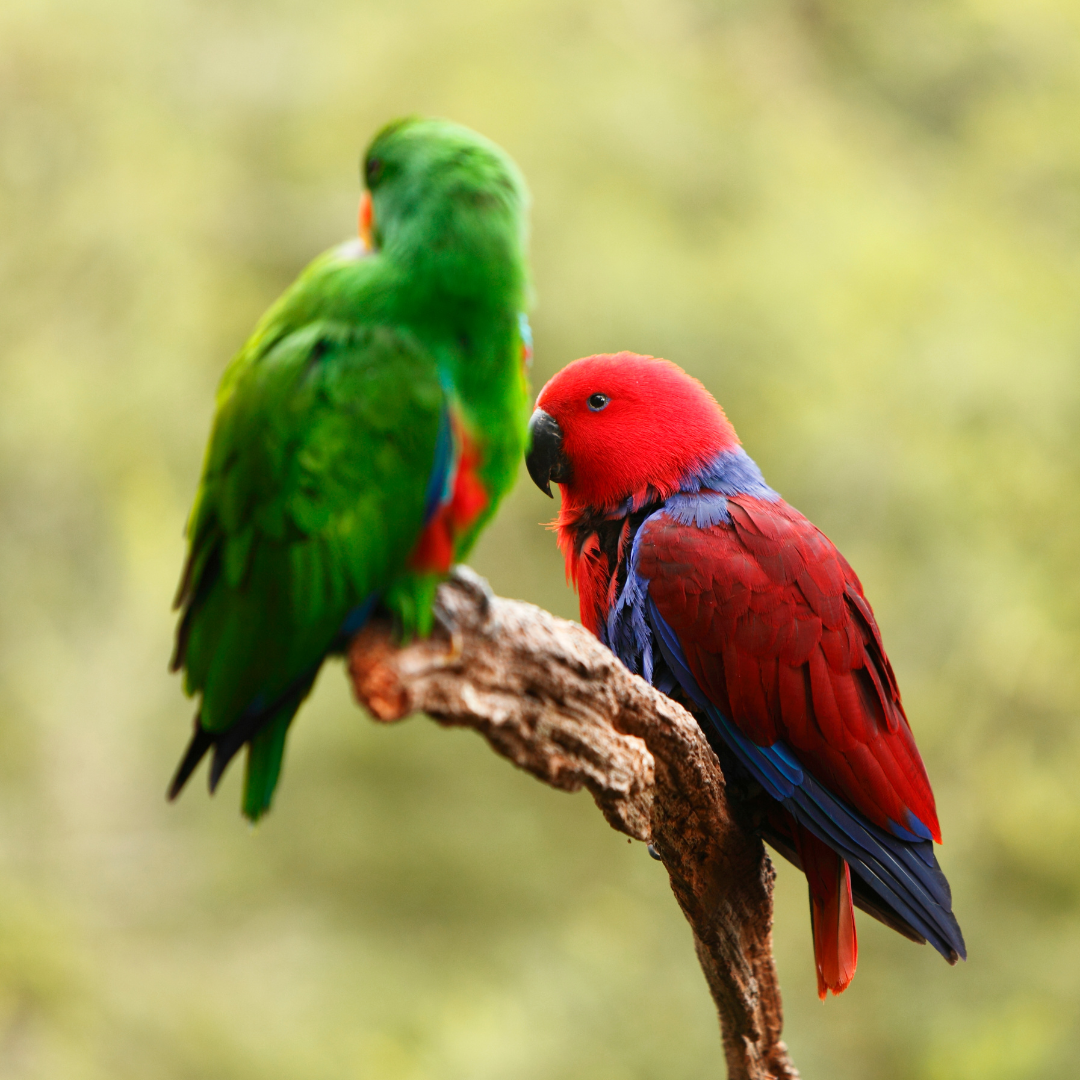
5. Eclectus Parrots
Eclectus parrots are a species of parrot known for their striking appearance, high intelligence, and social nature. They can live up to 30-40 years in captivity with proper care.
The lifespan of an Eclectus parrot can vary depending on genetics, diet, and environment. In general, male Eclectus parrots tend to live longer than females. Males can live up to 30-40 years in captivity, while females have a slightly shorter lifespan of around 20-30.
Eclectus parrots require a lot of interaction and mental stimulation to thrive. They are intelligent birds that need plenty of toys, puzzles, and socialization with their owners to keep their minds active and healthy. They are also highly social birds that enjoy spending time with their owners and may become depressed or anxious if left alone for long periods.
As Eclectus parrots age, they may become more prone to health problems such as arthritis, respiratory infections, and nutritional deficiencies. Regular veterinary checkups and a balanced diet can help prevent or manage these health issues and keep Eclectus parrots healthy and happy.
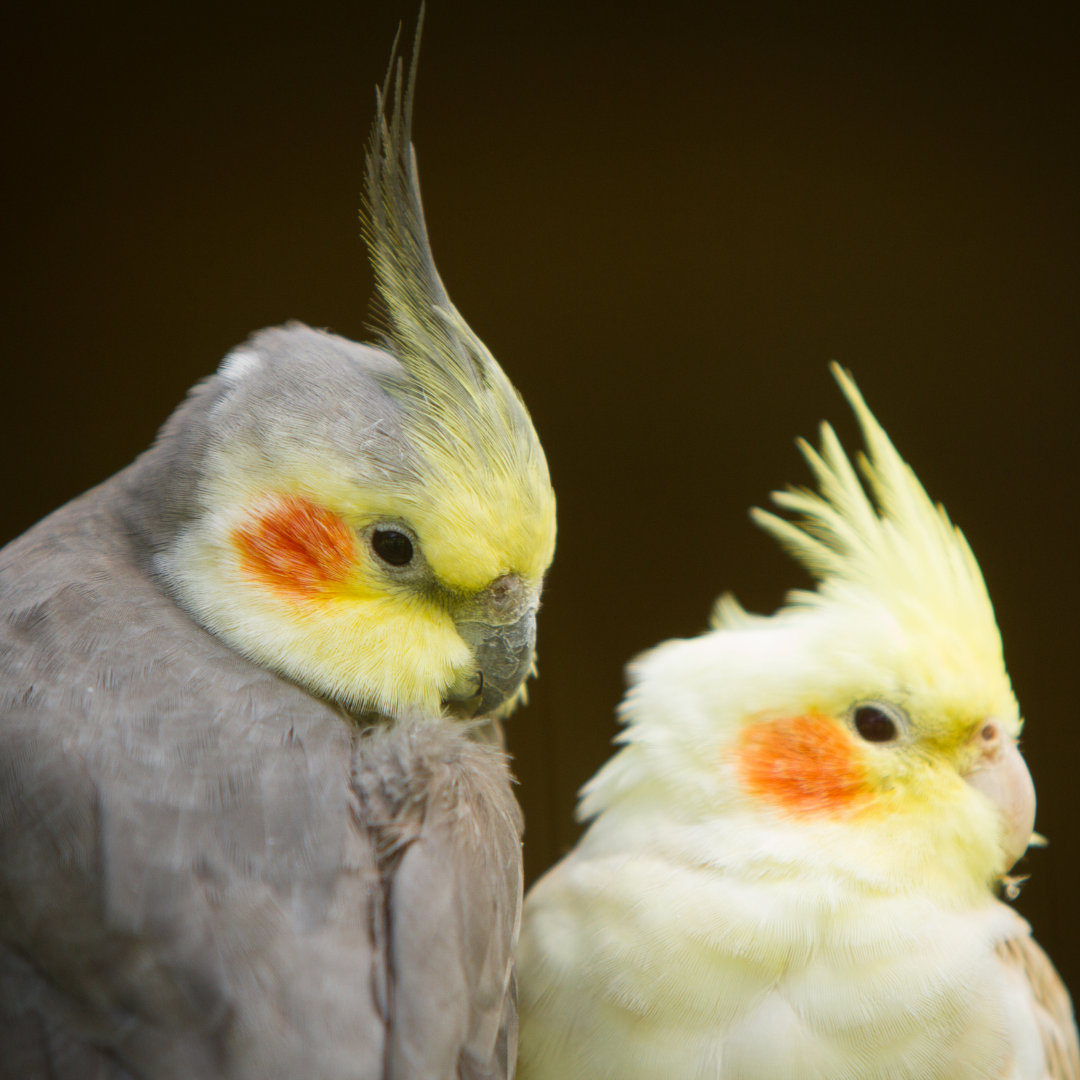
6. Cockatiels
Cockatiels are a species of small parrot that can live for up to 15-20 years in captivity with proper care. Their lifespan may be shorter in the wild due to predators, disease, and other environmental factors.
Several factors, including genetics, diet, environment, and veterinary care, can influence the lifespan of a cockatiel.
To ensure a long and healthy life for your pet cockatiel, providing them with a balanced diet that includes a variety of fresh fruits and vegetables and a high-quality seed or pellet mix is important. Clean and fresh water should always be available.
Cockatiels also require a clean and safe environment, with plenty of space to move around and exercise. Regular veterinary checkups are important for detecting and treating health issues early on.
Proper socialization and training can also play a role in the lifespan of a cockatiel. Cockatiels are social creatures and enjoy spending time with their owners. Regular interaction and positive reinforcement training can help build a strong bond and keep your cockatiel mentally and emotionally stimulated.
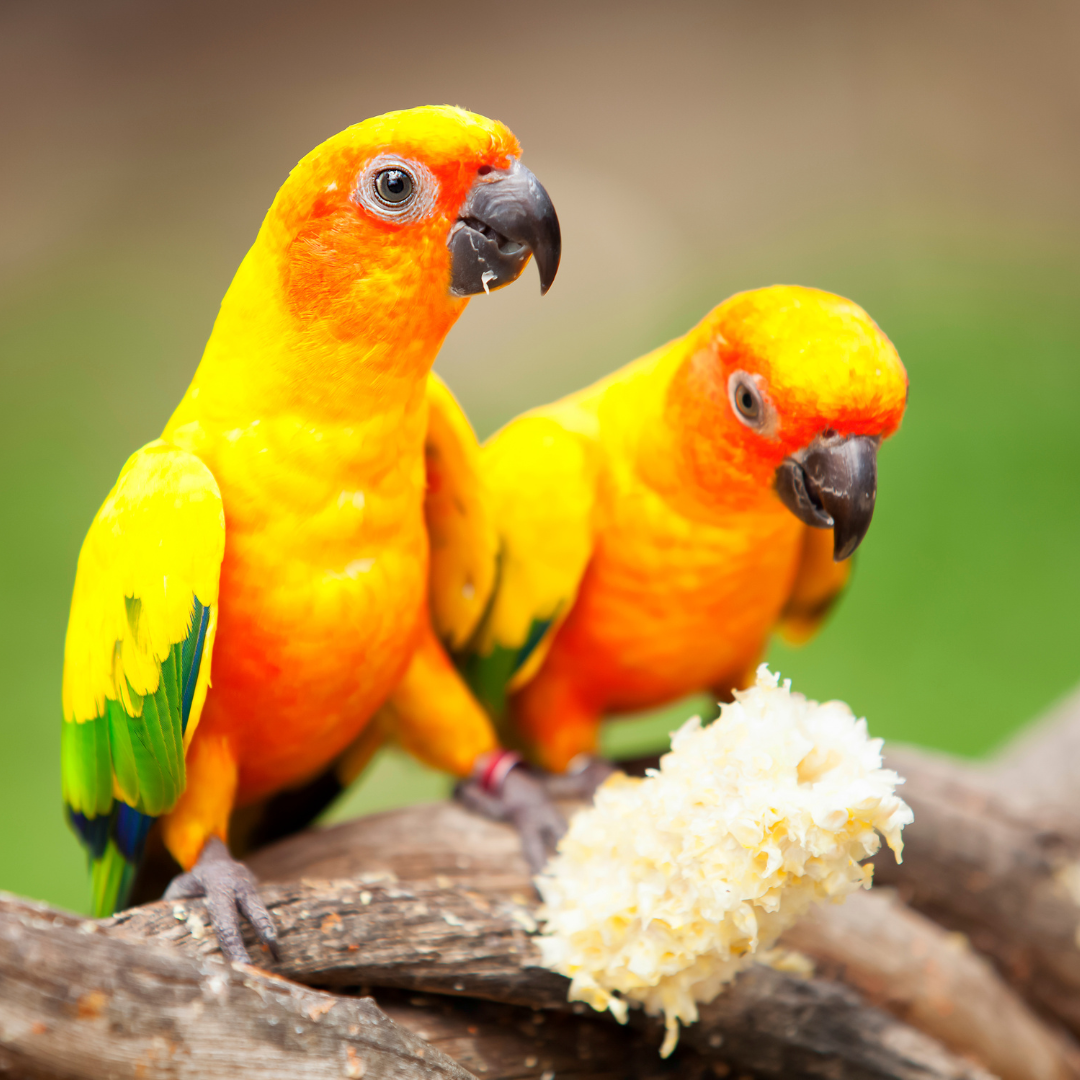
7. Conures
Conures are beloved birds among pet owners due to their playful nature and ability to form strong bonds with their human companions. With proper care, many conures can live in captivity for 20-30 years.
To ensure the longevity of a conure's life, providing them with a balanced diet that includes a variety of fresh fruits and vegetables and a high-quality pellet or seed mix is essential. Access to clean water is also crucial for maintaining their health.
Conures thrive in a clean, safe environment, providing ample exercise and movement space. Regular veterinary checkups can help detect health issues and ensure the bird receives the necessary care.
Conures are social creatures that require regular interaction and mental stimulation. Owners should engage in positive reinforcement training to help build a strong bond with their conure and keep them mentally and emotionally healthy.
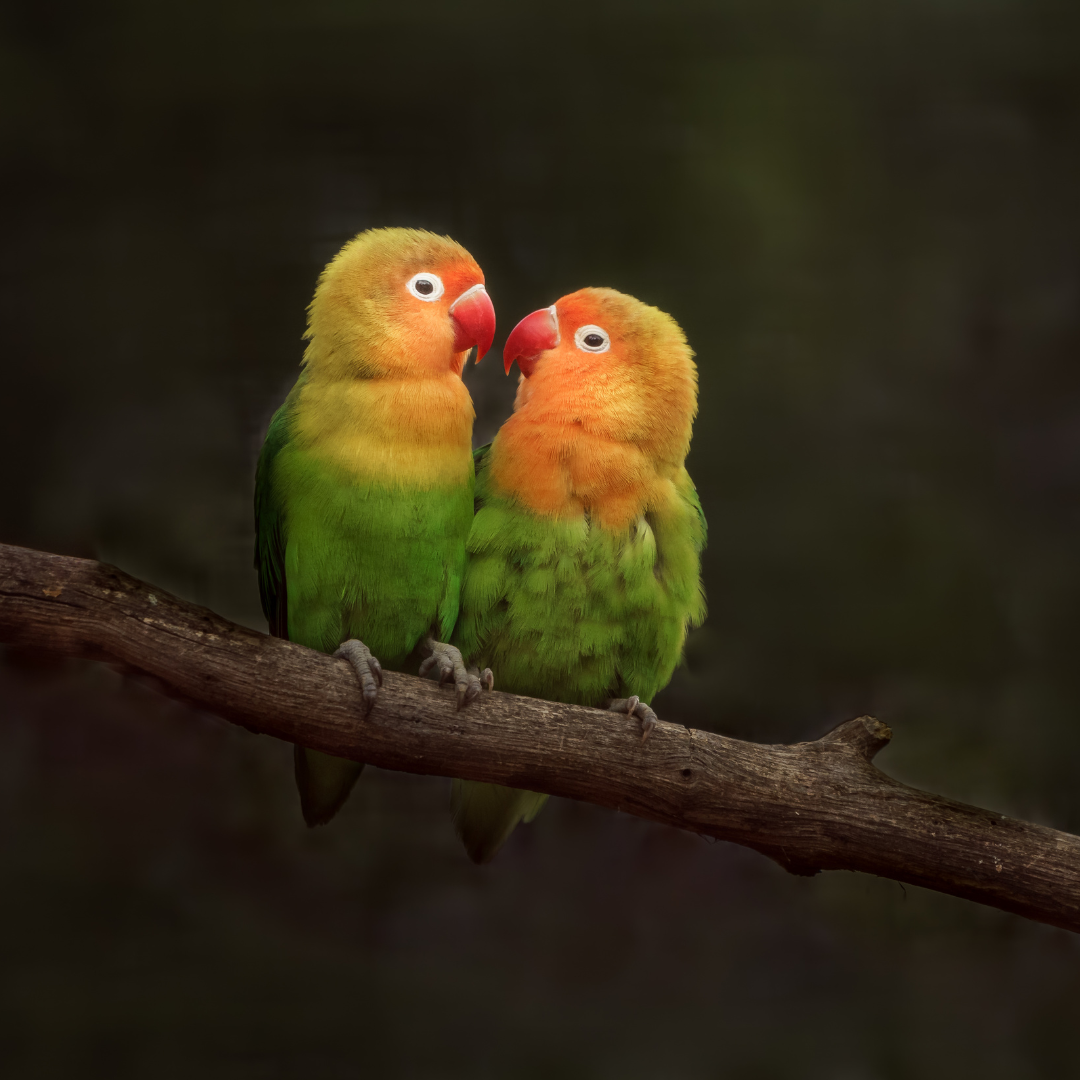
8. Lovebirds
Lovebirds are a small and colourful parrot species known for their affectionate and social nature. Lovebirds can live in captivity for 10-15 years or more with proper care. However, their lifespan can be influenced by a variety of factors.
One of the most important factors that can influence the lifespan of a lovebird is diet. Lovebirds require a balanced diet that includes a variety of fresh fruits and vegetables and a high-quality seed or pellet mix. Fresh, clean water should always be available.
Environmental factors can also play a role in the lifespan of a lovebird. Lovebirds require a clean, safe living space with plenty of room to move around and exercise. Regular veterinary checkups are important for detecting and treating health issues early on.
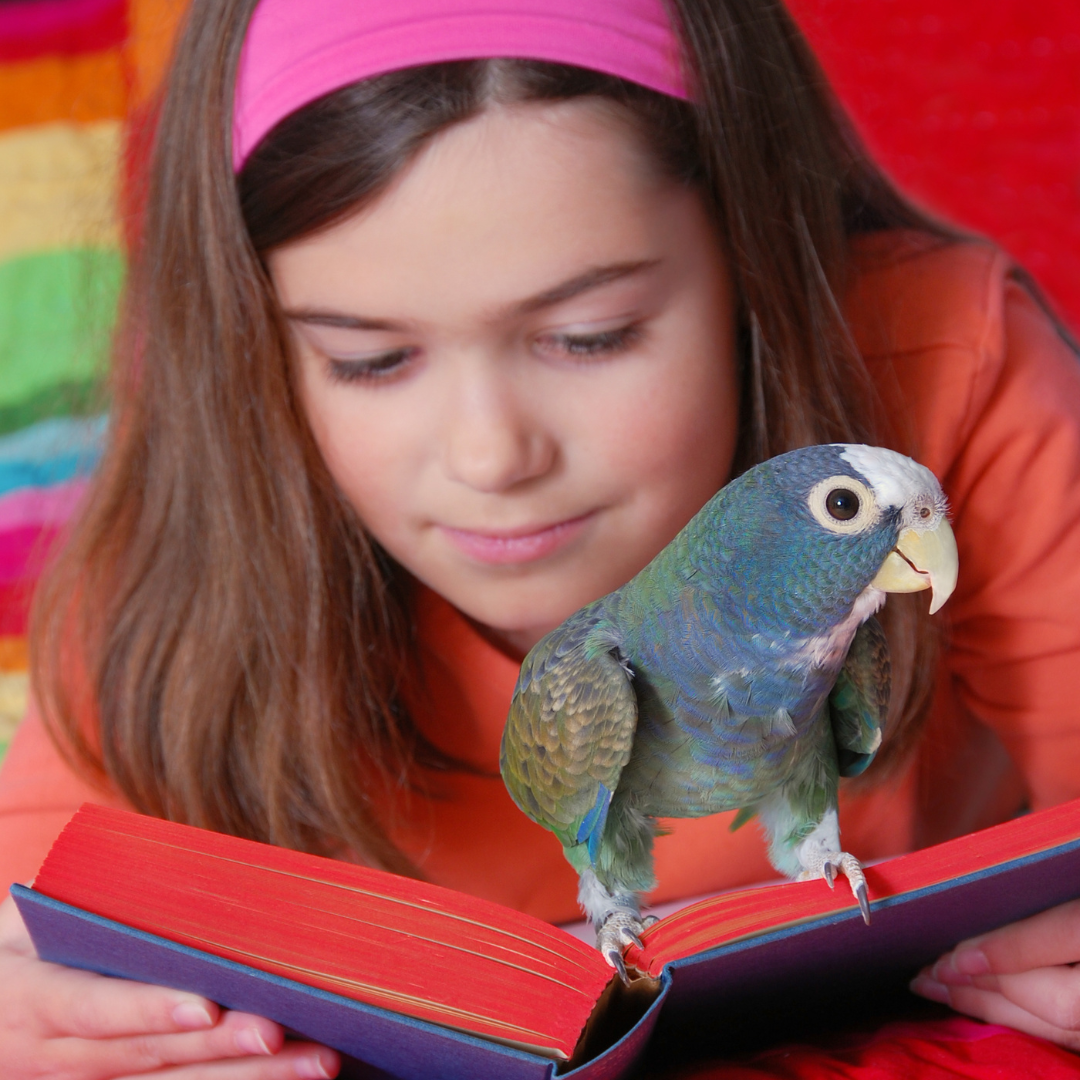
9. Pionus Parrots
Pionus parrots have a lifespan of up to 25-30 years in captivity with proper care. These medium-sized parrots are known for their gentle and calm nature, making them an ideal choice for pet owners who want a bird that is not as demanding as some larger parrot species.
To ensure a long and healthy life for Pionus parrots, providing them with a balanced diet that includes high-quality pellets, fresh fruits and vegetables, and occasional seeds or nuts is essential.
Clean water should always be available. Environmental factors such as a clean and safe living space with plenty of room to move around, exercise and play are also important.
Regular veterinary checkups are necessary to monitor the health of Pionus parrots and detect any potential issues early on.
These birds also require socialization and mental stimulation to stay happy and healthy. Positive reinforcement training, regular interaction with their owners, and opportunities to play and explore can contribute to their well-being.
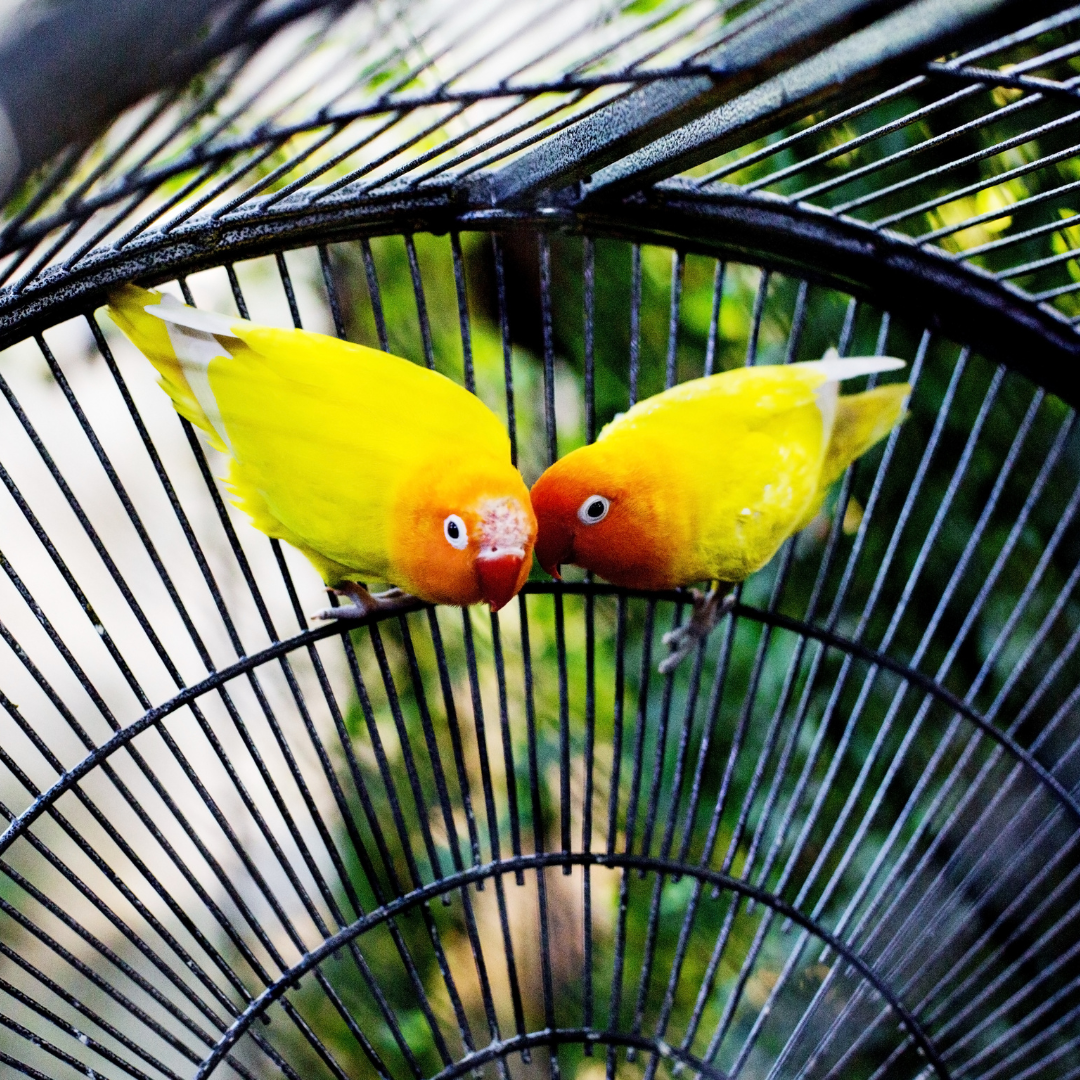
Conclusion
Providing a long and healthy life for your pet bird requires attention to several factors, including genetics, diet, environment, veterinary care, and exercise. By understanding and addressing these factors, you can help maximize your bird's lifespan and ensure it enjoys a happy and healthy life.
Choosing the right bird species is important when looking for a pet that will live a long time. Larger parrots, such as macaws and cockatoos, can live for several decades, while smaller birds, like finches and canaries, have a shorter lifespan. However, genetics and other factors can also significantly affect a bird's lifespan.
Feeding your bird a balanced and nutritious diet, providing a clean and safe environment with proper temperature and ventilation, offering regular veterinary care, and providing opportunities for physical exercise and mental stimulation can all help to maximize your pet bird's lifespan.
Ultimately, providing your pet bird with a long and healthy life requires dedication and attention to its needs. By taking the necessary steps to ensure your bird's health and well-being, you can enjoy the companionship of your feathered friend for many years to come.
I trust you enjoyed this article on Pet Birds That Live A Long Time. Please stay tuned for more blog posts to come shortly. Take care!
JeannetteZ
>>>Do you want to know more about pet parrots? Click here to find out how to teach them neat tricks, feed them natural food, and much more<<<
Your Opinion Is Important To Me
Thoughts? Ideas? Questions? I would love to hear from you. Please leave me your questions, experience, and remarks about this article on Pet Birds That Live A Long Time in the comments section below. You can also reach me by email at Jeannette@Close-To-Nature.org.
Disclosure
This post may contain affiliate links. I earn from qualifying purchases as an Amazon Associate and other affiliate programs. Please read my full affiliate disclosure.
You might also enjoy these blog posts:
Best Gardening Tips For Beginners
Solar Energy vs Nuclear Energy
8 Steps Of Growing Blackcurrants In Containers
12 Easy Steps Of Growing Tangerines In Pots
9 Steps To Growing Grapes In Pots

